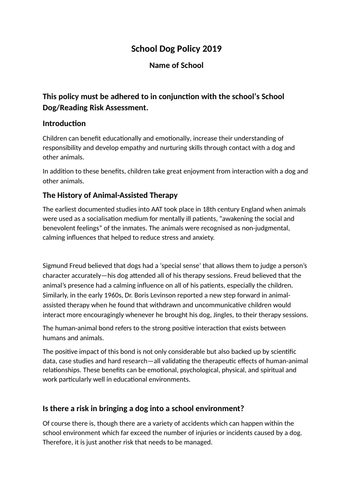

Reading Dog / School Dog Policy
Sigmund Freud believed that dogs had a ‘special sense’ that allows them to judge a person’s character accurately—his dog attended all of his therapy sessions. Freud believed that the animal’s presence had a calming influence on all of his patients, especially the children. Similarly, in the early 1960s, Dr. Boris Levinson reported a new step forward in animal-assisted therapy when he found that withdrawn and uncommunicative children would interact more encouragingly whenever he brought his dog, Jingles, to their therapy sessions.
The human-animal bond refers to the strong positive interaction that exists between humans and animals.
The positive impact of this bond is not only considerable but also backed up by scientific data, case studies and hard research—all validating the therapeutic effects of human-animal relationships. These benefits can be emotional, psychological, physical, and spiritual and work particularly well in educational environments.
Something went wrong, please try again later.
This resource hasn't been reviewed yet
To ensure quality for our reviews, only customers who have purchased this resource can review it
Report this resourceto let us know if it violates our terms and conditions.
Our customer service team will review your report and will be in touch.